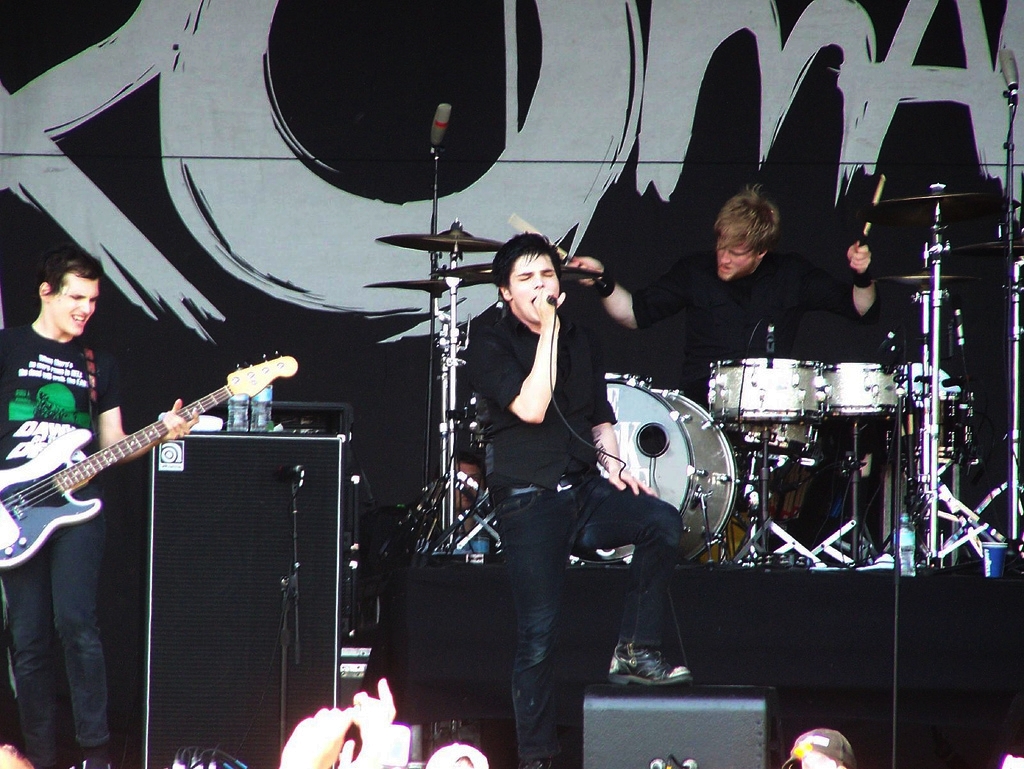MUSIC HISTORY
Since the 2nd century and 3rd century BC, in China da Egypt there is music that has a particular shape. By getting the influence of Egyptian and Babylonian, Hebrew music that developed later evolved into Church music. The music was then favored by the public, because of the music players that wander and sing the songs used in church ceremonies. The music was spread across Europe has grown, and instrumental music thrive after some improvements in musical instruments such as violin and cello. Then timbulah Orgel musical instrument. Great composers emerged in Germany, France, Italy, and Russia. In the 19th century, a sense of nationalism began to wake up and grow. Therefore, the development of music split according to nationality respectively, although at the outset both the Romantic style. Start the 20th century, France became a pioneer with impressionistic music that immediately replaced with expressionistic music.
A. Development of World Music
Music has existed since ancient Ages and used as a tool to accompany the ceremonies of the trust. Changes in music history occurred in medieval times, due to changes in state of the world's growing. Music is not only used for religious purposes, but used also un tuk worldly affairs
DEVELOPMENT OF WORLD MUSIC divided in SIX DAYS:
Medieval 1.Zaman
Medieval cultural history is the day between the end of the Roman empire (476 AD) until the Age of Reformation Christianity by Marthen Luther (1572M). Music in the Age of development is caused by the change in state of the world are increasing, which led to new discoveries in all fields, including culture. The change in the history of music is that music tedak again focused on religious interests but also used for worldly affairs, as a means of entertainment.
Further development is the improvement of writing music and the basics of music theory developed by Guido d 'Arezzo (1050 AD)
Music by using some sound developed in Western Europe. Music Greogrian perfected by Pope Gregory.
Pioneer Music in the Middle Ages are:
1. Gullanme Dufay from France.
2. Adam de la Halle of Germany.
2. Renaissance Period (1500 - 1600)
Age of Renaissance is the period after mid-century, Renaissance Rebirth means high levels of culture that have been lost in the Roman Period. Studied music with a special characteristic, eg romance songs, songs heroism. Instead the music of the Church suffered a setback. In this age of musical instruments Piano and Organ already known, so munculah Instrumental music. In the city of Florence to develop the art of opera. Opera is a play with musical accompaniment oloeh accompanied the singers.
Composer-composer on the Age of Renaissance are:
1. Giovanni Gabrieli (1557 - 1612) from Italy.
2. Galilei (1533 - 1591) from Italy.
3. Claudio Monteverdi (1567 - 1643) from Venice.
4. Jean Baptiste Lully (1632 - 1687) from France.
3. Baroque Period and Rokoko
Progress on medieval music is marked by the emergence of new musical streams, such as Baroque and Rokoko flow. Both these flows are nearly equal, namely the use of ornamental (Ornaments Music). The difference is that wearing ornamental Baroque music that deserahkan on spontaneous improvisation by the players, while the music is recorded Rokoko all ornamental decoration.
Composer-composer on the Age of Baroque and Rokoko:
A. Johann Sebastian Bach
Born March 21, 1685 in Eisenach Germany, died on July 28, 1750 at Lipzig Germany. Her work is very beautiful and famous:
1. St. Mathew Passion.
2. Mass in b minor.
3. 13 piano concerts with orchestra
4. Brandenburg Concerto 6 units
Custom-his composition underlie modern music. Coral Sebastian Bach composed music (music for Preaching Church) and created the instrumental songs.
At the end of his life Sebastian Bach became blind and died in Leipzig
B. George Frederick Haendel
Born in Halle Saxony February 23, 1685 in London, died in London on 14 April 1759. During the little he had to show bekat expertise in playing music. In 1703, he moved to Hamburg to become anggaota Opera Orchestra. In 1712 he again visited England. The result is the famous creations;
1. Messiah, which is the Oratorio (name of a type of music) are well known.
2. Water Music (Water Music).
3. Fire Work Music (Music Firecrackers).
Fire Work Water Music and Music is the most famous orchestra. He died in London and was buried in Westminster Abbey.
4. Classical Period 91750 - 1820)
Dimukai classical music history in 1750, after the end of Baroque music and Rokoko.
Characteristics of Classical Music Period:
a. The use of dynamics from Hard to Soft, Crassendo and Decrasscendo.
b. Change the tempo with accelerandos (the Fast) and Ritarteando (more gently).
c. Use is limited ornamental
d. Use of Accodr 3 tone.
